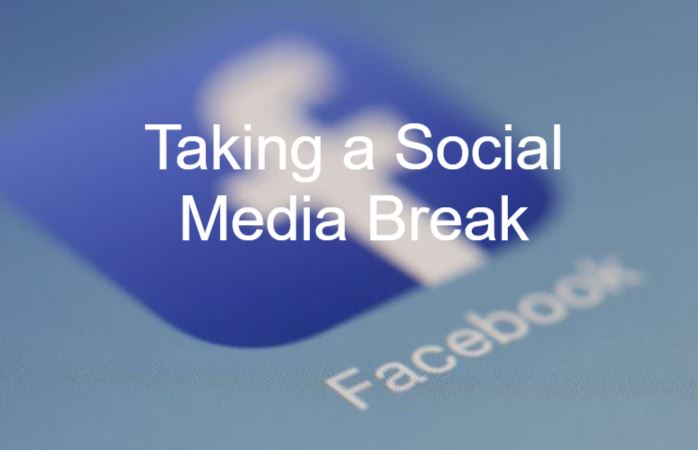Conversational Narcissism & Surviving A Conversational Narcissist
First off, did you know that’s a thing? It is. A conversational narcissist is a person who manipulates each and every conversation to be about them. You may start talking about your eyeball hanging out and before you can utter three words, you’re listening to the other person tell you about their hangnail.
WORST. HANGNAIL. EVER.
As soon as you’re done listening to a very long diatribe about the hangnail, she has to go.
Next time you hear from her, same thing. It may even be the same problem, because if she solved that problem, she’d have to come up with something new.
If you get a word in edgewise, it’s usually what’s called a shift response, one where the person immediately shifts the focus back onto them.
Examples of conversational narcissim, or a shift response conversation:
- Me: Hi! I’m so glad to see you! How are you?
- Person: Oh, I’m fine…been a rough day.
- Me: Oh, I’m sorry to hear that. What’s up?
- Person: I didn’t sleep much and then I had to get up early. Lots of errands to do today.
- Me: Ick, I hate days like that! I hope you get some sleep tonight. I’ve got a few errands to run today, too.
- Person: You probably got more sleep than me. I’ve got to head to two stores today and then I have to make dinner.
- Me: That’s indeed a lot! I just have to food shop and Target but I have a doctor’s appointment first so I hope that goes quickly.
- Person: Oh, that’s right! I have to get to Target, too.
See what’s happening here? Everything Me says is answered with a response that shifts it back to Person. Nothing Me says is acknowledged.
Typical, normal conversations with non-narcisssists go more like this:
- Me: Hi! I’m so glad to see you! How are you?
- Person: I’m excited to see you, too! I’ve missed you. I am well — how are you?
- Me: I’m well, too, thanks. Just headed out on a day of errands. Starting off today here with you makes it better though!
- Person: Right? I didn’t sleep a lot so I really need this caffeine before I head out on my errands, too. What’s your day look like?
- Me: Food shopping, Target and a doctor’s appointment first, so I hope it doesn’t take long or I’ll have to cut Target short.
- Person: Oh no, I hope your doctor’s appointment isn’t anything serious? I just have to hit up a couple of stores.
Those are supportive responses, responses that acknowledge what you say even while still talking about her/himself. That’s a normal conversation where there’s both give and take. Both talk, both listen. It can lean in one direction some, and that’s normal, too…but it has to also head back towards the middle or even to the other side. This is how normal conversations take place.
Conversational narcissists can’t do that though.
Conversational narcissism is not a normal conversation.
They sometimes just like to hear themselves talk, but more often, they are self-centered and the fact that you may need to talk rarely enters their mind. The conversational narcissist doesn’t appear to care if you’re standing there with your eyeball hanging out if they want to talk about their hang nail. They may even call you specifically to tell you about their hang nail even while they know you’re already out of the house, on a vacation or while you’re sick.
These people may thrive on drama…and by drama, the normal things we all deal with, magnified and embellished to sound OH SO BAD. It may even be drama that they create or feed into. They are frequently one-uppers, and to segue, they may even say “Oh, I can top that…” in regard to your eyeball hanging out. Sometimes, it can feel like they’re chomping at the bit to tell you their latest saga or that they have to really reach to turn the conversation back onto them, but they somehow find a way.
If you’re looking to one of these people for support, you’re looking in the wrong place. They likely don’t care. Supporting you means they can’t talk about themselves and that they aren’t getting the attention.
They may have resentment or jealousy towards you and certain things you are excited about — a promotion, a new baby or other good news — are often ignored. Their: job, kids, health, etc…whatever it is, is likely more exciting, better, or worse than yours.
A conversational narcissist can put you on the spot, make you feel obligated to listen and have you feeling guilty if you don’t. You feel roped into responding appropriately and kindly. Your natural concern extends and before you know it, you’re completely feeding into their never-ending neediness. When they’re done, or when you stop responding about them, they’re done. Busy. Gotta go. Crickets.
Your purpose, to them, is to listen and sympathize, so don’t expect more. Don’t expect the party invites or the fun things; you know all the secrets and it’s dangerous to have you around all the people that they’ve vented to you about.
We all have one of these people in our life, if not more. Some of these people you can walk away from, but if it’s a co-worker or family member, it’s a little tougher.
Being stuck with a conversational narcissist is difficult, but it isn’t about you, it’s about them, and that’s not just about the topic of conversation. The problem overall lies with them. They don’t see it. You could show them this post and they’d probably laugh and say “who does that?” If you don’t give them what they seek, they blame you. They think you’re the bad friend, the rude co-worker, the distant family member.
Conversational narcissism is maddening.
Some of us have more than one of these people in our life. Some of us are just downright exhausted. We’re stuck listening to so many of these draining conversations, we can’t take it anymore. We wonder if we have something on our forehead that says “Bring me all your problems. Really. Let me be your therapist and listening ear!” It’s okay being the supportive type that can help people, but the conversational narcissist isn’t looking for your help. They’re looking for attention.
One person is bad enough, but two? Three? It leaves you with little choice. Find a way to nod and give the proper one-word responses and end it quickly, minimize exposure or just plain out end the relationship. Don’t feel bad about protecting yourself and knowing when it’s time to put your foot down. It’s not selfish to have your own life and be tired of all the drama.
Nodding and one-word responses — sometimes it’s the lesser evil, if you can tolerate it and end a conversation quickly.
Minimizing exposure means you can at least say to yourself: I only have to deal with this today. Then you take a break.
Ending the relationship is sad, but narcissists don’t necessarily change. Why should they? There’s nothing wrong with them.
I’ve always been a listener, and that’s okay. I like to be there for people and try to help. What’s not okay is when I’m taken advantage of, when the precedent is so set that the first time I’m not available, I’m ‘the problem.’ I’m learning. I’m working on saving my time for those who really need it and those who want me around, not just need me around….and for those who value my time and consider what I may be doing before they seek attention.
Conversational narcissists — not necessarily the same as a full-blown constant selfie-sharing narcissist — are everywhere. We all know them. Let’s just not all be one.
For more information, you can read The Art of Conversation or How to Spot a Toxic Person. Don’t let it stop you from being a kind person, which is one of the hardest things for me. I feel bad…but we matter, too. Our life matters. Our problems matter. The conversational narcissist may not let you matter to them until you make it happen.






I got stuck living with a sister who is like this. She and my brother were homeless at one point then they were living in this tiny trailer with her boyfriend as well until one day she found me on social media and called and asked if we could get a place together and it just so happened that my husband and I were separated but living together with my two children from a previous marriage that ended in death. Anyway, that was in 2011 and I have been living with her, my brother and my son since that time and it is really getting to me so I decided to try to have the least contact with her if I can help it. She is elderly and sickly too so she needs me to take her to doctor appt’s, etc. and she is a drama queen who cannot handle pain and she is out of the loop with technology, she refuses to use a cell phone or computer so I have to always look up stuff for her, etc. I could go on and on but I don’t want to appear to be a conversational narcissist as well!